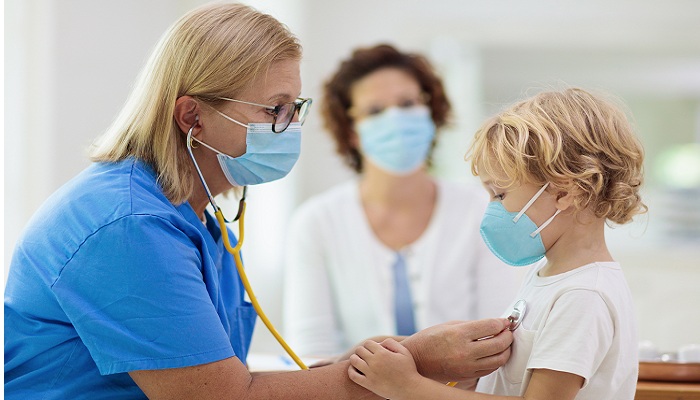Today, a new study published in Scientific Reports shows an effective treatment to heal damaged brain tissue and relieve symptoms in children experiencing persistent post-concussion syndrome (PPCS).
The study, conducted by the Sagol Center for Hyperbaric Medicine and Research at Shamir Medical Center, is the first trial looking at the effects of hyperbaric oxygen therapy (HBOT) for children suffering from PPCS and is one of the few sham-controlled studies in PPCS that effectively studies a solution for the condition. The study suggests that HBOT improves cognitive, behavioral function and quality of life in pediatric patients suffering from PPCS at the chronic stage, even years after their traumatic injury.
According to the Brain Injury Association of America, about half a million children suffering from a concussion or traumatic brain injury are discharged from emergency departments in the U.S. each year. While the majority
recover in days to weeks following injury, up to 25% endure symptoms for more than three months after their injury and considered as PPCS. Children suffering from PPCS experience many symptoms, including fatigue, anxiety, irritability, headaches, dizziness, and difficulty concentrating or processing words. The diagnosis and treatment of these injuries are greatly misunderstood and understudied, and current guidelines for the treatment of concussion only span the first two weeks of symptoms.
Leaving the condition untreated puts the child at a significant disadvantage and directly impacts their development into adulthood.“The diagnosis and treatment of post-concussion syndrome in children is a critical issue that physicians and researchers have struggled with, to the detriment of the children,” said Dr. Shai Efrati, medical director of the Sagol Center for Hyperbaric Medicine and Research and Shamir Medical Center and Chair of Aviv Scientific’s Medical Advisory Board. “For the first time, we have demonstrated an effective treatment for pediatric PPCS, whether the injury occurred six months to 10 years ago. This discovery offers hope to the thousands of families watching their children suffer from unrelenting symptoms.”
The randomized, sham-control, double-blind trial evaluated the effect of HBOT on children (ages 8-15) suffering from PPCS from mild-moderate TBI events six months to 10 years prior. Participants were injured from various incidents, most resulting from a fall or motor vehicle accident. Twenty-five children were randomized to receive 60 daily sessions of HBOT or sham treatments. Recruitment was the main challenge of this trial – and studying pediatric concussions in general. Parents of injured children were reluctant for their child to receive a sham treatment (50% chance on randomization), thus leading to many families declining to participate. Due to the importance of the topic and the need for answers for children with PPCS, researchers decided to proceed with the small study group.
Participants were divided into two groups: 15 received HBOT sessions and ten received sham sessions. Participants in the sham group received a protocol unique to this study in which they breathed normal air at 1.1 atmospheres absolute (ATA) for the first five minutes, gradually decreasing to 1 atmosphere. While the participants were not receiving any active treatment, the pressure at the beginning of the sham sessions created the need to equalize pressure, or “pop” their ears (which also occurs during HBOT treatment), achieving a true placebo effect in the participants.
The HBOT treatment protocol consisted of 60 daily HBOT sessions, five sessions per week over a three-month period, in which participants entered a multiplace HBOT chamber and breathed 100% oxygen by mask at 1.5 ATA for 60 minutes.
“We have accomplished many incredible firsts in this study, including a unique sham protocol which is the first of its kind in hyperbaric medicine. The protocol enables true masking and blinding of patients without any active treatment,” said Dr. Amir Hadanny, Chief Researcher and Head of Global Clinical Operations at Aviv Clinics. “We performed an additional analysis to provide evidence that children were not able to tell whether they received hyperbaric oxygen or plain air. This true placebo effect paved the way for an effective study to better understand and offer a solution for PPCS in pediatrics.”
Upon completion of the study, researchers found that participants in the treatment group experienced a significant increase in cognitive function, including the general cognitive score, memory, and executive function, following the HBOT treatment. Specific PPCS symptoms that saw improvement include emotional score, behavioral symptoms like hyperactivity, global executive composite score, and planning and organizing score. Perhaps most significantly, there was a positive change in brain structure in their MRIs as a result of the HBOT, with microstructural changes occurring in the cortical regions associated with PPCS symptoms and cognitive dysfunction, leading to the significant changes measured in memory, verbal fluency, and executive function. Participants in the control group did not improve from baseline scores.
The same treatment protocol conducted during this study has been replicated by Aviv Clinics in Central Florida and Dubai. It is administered under the same strict protocols, with additional comprehensive cognitive and physical training support for the various conditions and symptoms addressed by Aviv including concussion and TBI, long COVID, stroke and more.


















